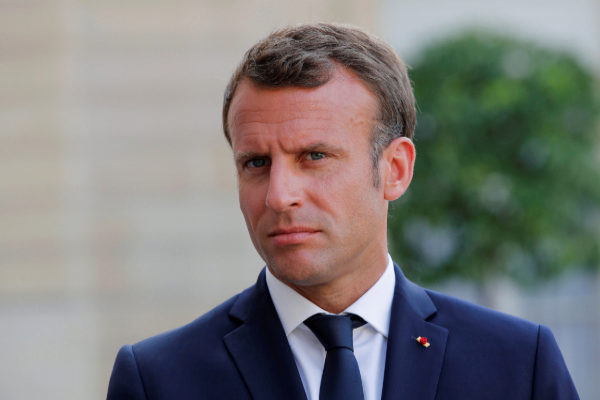- EU.Boris Johnson: "The United Kingdom cannot accept the current Brexit agreement"
- Scenarios: Hard Brexit, a boomerang for the United Kingdom: lack of food and air chaos
- Brexit. The European Union to Boris Johnson: "Opposing the Irish safeguard is supporting a hard border in Ireland"
British Prime Minister Boris Johnson meets Thursday in Paris with French President Emmanuel Macron, who will reaffirm France's rejection of Brexit's renegotiation demands.
On the second leg of his first overseas tour since he came to power in late July, Johnson will be received at the Elysium. The meeting seems to be less conciliatory than his appointment was, the day before in Berlin, with German Chancellor Angela Merkel.
Merkel had labeled an agreement with London as "possible in the next 30 days" to avoid an un negotiated divorce between the United Kingdom and the European Union on October 31.
Earlier in the week, Johnson urged EU countries to resume negotiations. "Maybe we can do it in the next 30 days, why not?" Said the chancellor.
On the contrary, Macron said on Wednesday that "renegotiation in the terms proposed by the British is not an option, and this has always been clearly stated by EU negotiator Michel Barnier.
" I am waiting for Boris Johnson's clarifications, " said the French president, while wishing that the talks with London on Brexit be "as friendly and fraternal" as possible.
Macron said that a "hard Brexit", without an agreement before October 31, " would be the responsibility of the British government ," which "always has the possibility until the last second to withdraw Article 50," on which Brexit rests.
The Elysium, which insists that "today, the central stage of Brexit is that of no deal", states that even in this case, the bill of 43 billion euros that London still owes to the European Union remains pending.
Discussions on a negotiated exit of the United Kingdom from the community bloc stumble on the mechanism called "Irish safeguard", provided for in the agreement that closed London and the EU.
This controversial provision is a device of last resort to ensure that, if a better solution is not found, a physical boundary between Northern Ireland and the Republic of Ireland is not re-established.
The mechanism would result in the maintenance of the whole of the United Kingdom within the Customs Union with the EU countries until the two parties find a solution to define their future post-Brexit relationship, within a period of about two years.
According to the criteria of The Trust Project
Know more- London
- European Union
- UK
- Boris johnson
- Angela Merkel
- Paris
- France
- Emmanuel Macron
- Brexit
Macroeconomics The fall of the pound shakes Johnson's hard Brexit
Economy Trade war, Italy and Brexit, the other major threats that ballast Spanish companies
Macroeconomics Brexit uncertainty causes British GDP to contract for the first time since 2012

